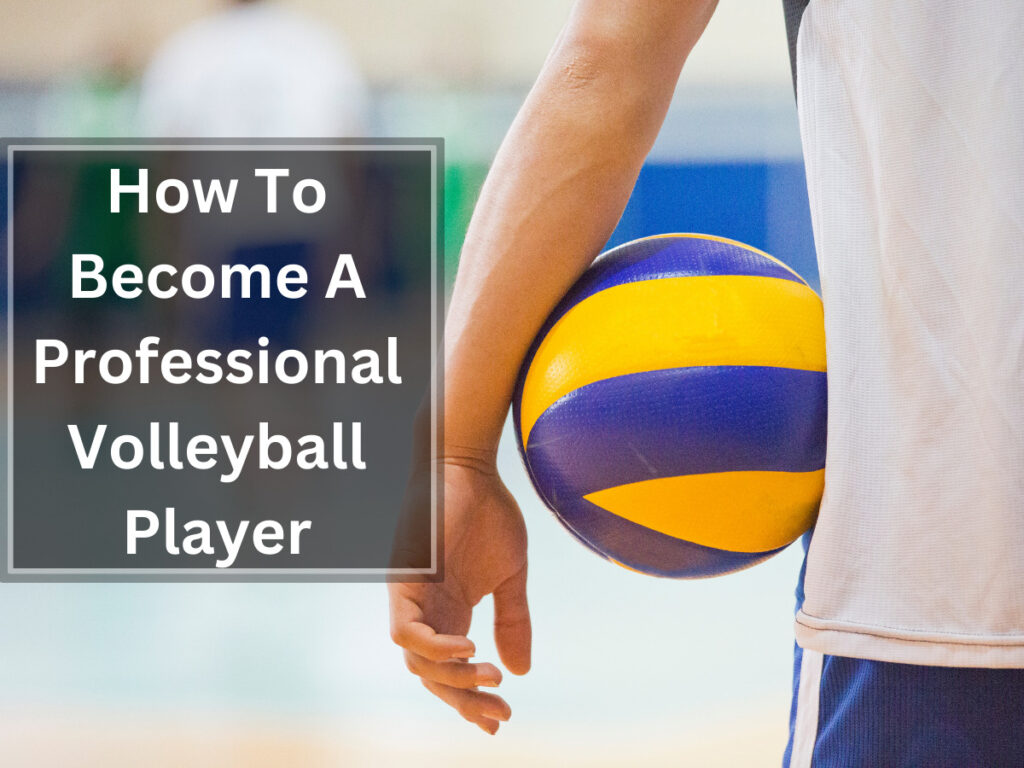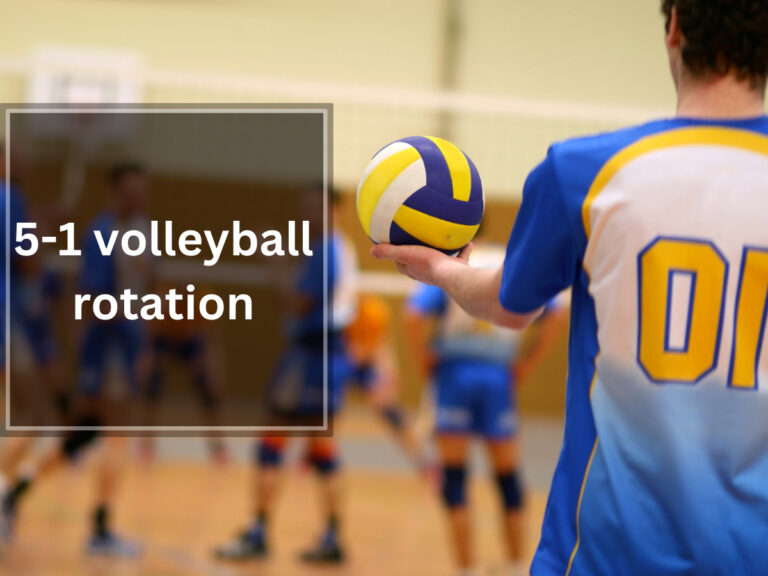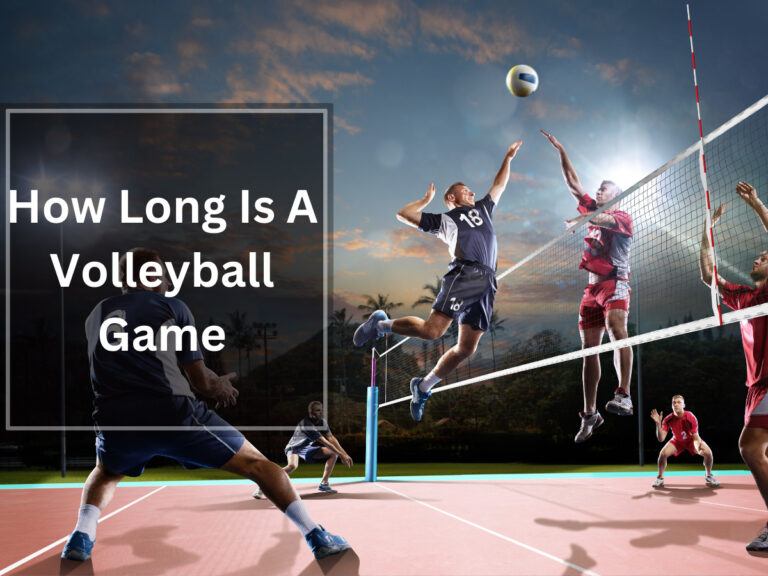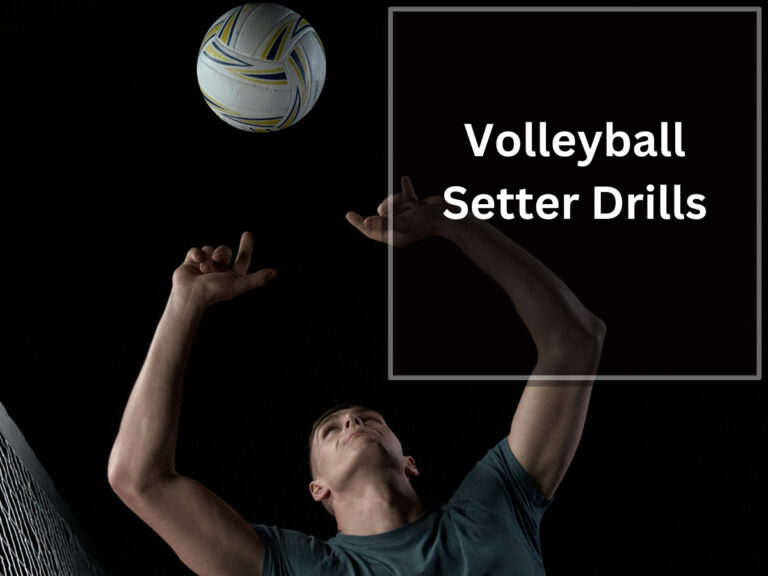How To Become A Professional Volleyball Player

Hey there, fellow volleyball enthusiasts! Did you know that only a small percentage of volleyball players make it to the professional level? It’s true – becoming a pro in this sport takes more than just talent. As someone who has been lucky enough to experience the journey firsthand, I’m here to share my knowledge and passion with all of you aspiring athletes out there.
Becoming a professional volleyball player is not an easy feat, but with dedication and hard work, it is absolutely possible. In this article, we will delve into the essential steps and skills needed to turn your dreams into reality.
From understanding the game and setting goals to developing crucial techniques and joining competitive teams, we’ll cover everything you need to know.
So if you’re ready to take your love for volleyball to new heights and join the ranks of the pros, let’s dive right in! Remember, this journey requires commitment and perseverance, but with the right guidance and mindset, you can achieve greatness on the court.
Let’s get started on this exciting adventure together!
Table of Contents
Understanding the Game of Volleyball
Understanding the game of volleyball is key to experiencing the thrilling and fast-paced nature of the sport. As a professional volleyball player, it is crucial to have a deep understanding of the game rules, player positions, and strategy.
Knowing how each position contributes to the team’s success and being able to execute various strategies will greatly enhance your performance on the court.
In addition to understanding the game itself, developing strong hand-eye coordination is essential for setting and attacking. Precise ball placement and control are crucial skills that can be honed through consistent practice. Improving reaction time and agility will also help you excel in these aspects of the game.
Furthermore, mental toughness plays a significant role in handling pressure as a professional athlete. Developing techniques for staying focused and composed during high-pressure situations is vital. Working on stress management, maintaining a positive mindset, and practicing visualization exercises will contribute to your overall mental resilience.
By continuously improving your understanding of the game, enhancing hand-eye coordination, and developing mental toughness, you will set yourself up for success as you pursue your dream of becoming a professional volleyball player.
Setting Goals and Creating a Plan
Visualize yourself as an architect, carefully crafting the blueprint of your future success in the world of volleyball. Set clear goals and create a detailed plan for your journey.
To start, focus on creating a training schedule that includes both individual skill development and team practice. Dedicate specific time each day to work on improving your weaknesses and enhancing your strengths.
Additionally, finding a mentor who can guide you through the ups and downs of your volleyball career is crucial. Look for someone with experience in the sport who can provide valuable insight and advice along the way.
In addition to training and mentorship, explore opportunities for college scholarships. Research universities with strong volleyball programs that align with your goals and aspirations. Reach out to coaches, attend camps or showcases, and showcase your skills through game footage or highlight reels.
By actively seeking college scholarships, you not only have the chance to further develop as a player but also open doors for potential professional opportunities down the line. Remember, success in becoming a professional volleyball player requires dedication, hard work, and strategic planning every step of the way.
Developing Essential Skills: Serving and Receiving
Developing essential skills in serving and receiving is crucial for a successful performance on the court. To master serving, focus on perfecting your toss, generating power from your legs and core, and mastering different types of serves. Incorporate serving drills that challenge your accuracy and consistency, such as targeting specific spots on the court or serving under pressure.
Improving your receiving skills requires practicing proper footwork, body positioning, and hand placement to ensure clean passes. Work on reaction time by participating in quick-paced drills that simulate game situations.
Consistent practice is key to developing these essential skills. Embrace the journey of growth and improvement as you strive to become a professional volleyball player.
Mastering Offensive Techniques: Spiking and Blocking
To truly dominate on the court, it’s crucial to perfect your offensive techniques, specifically when it comes to spiking and blocking. Mastering these skills will give you the edge in any game and make you a formidable force at the net.
When it comes to spiking, focus on developing explosive power in your legs and core. This will allow you to generate maximum force behind your hits and send the ball crashing down on the opponent’s side of the court. Additionally, work on timing and placement to strategically aim for open spots on the opposing team’s defense.
As for blocking, study your opponents’ tendencies and learn how to read their attacks. Position yourself well at the net and use your height, agility, and timing to disrupt their hits and shut down their offensive plays.
By utilizing effective strategies in serving and receiving, as well as improving defensive skills like digging and setting, you’ll create a well-rounded game that showcases your offensive prowess while maintaining a strong defensive presence.
Enhancing Defensive Abilities: Digging and Setting
Improve your defensive abilities on the volleyball court by honing your skills in digging and setting. This will allow you to be a valuable asset to your team’s defense and contribute to their success.
To enhance your defensive techniques, here are some key strategies:
Practicing Defensive Drills:
- Focus on footwork and positioning during drills.
- Work on quick reactions and reading the hitter’s movements.
- Practice diving and rolling techniques to save difficult balls.
Analyzing Defensive Strategies:
- Study opponents’ hitting tendencies and adjust accordingly.
- Communicate effectively with teammates for seamless defensive coverage.
- Anticipate plays by analyzing game situations and patterns.
By consistently practicing these drills and analyzing defensive strategies, you will become a more reliable defender on the court.
Remember that defense is just as important as offense in volleyball, so give it your all every time you step onto the court. Stay dedicated, work hard, and watch yourself grow into an exceptional defensive player.
Physical Conditioning and Fitness Training
Get ready to take your game to the next level by focusing on physical conditioning and fitness training.
As a professional volleyball player, I understand the importance of being in top shape to excel on the court. Fitness exercises and strength training are key components of my training routine. Building strong legs and core is essential for explosive movements during jumps and dives. Conditioning drills help me adapt to the fast-paced nature of the sport, improving my endurance and overall athleticism.
I incorporate a variety of exercises into my fitness regimen, including plyometrics, agility drills, and cardio workouts. These exercises not only improve my physical capabilities but also enhance my speed, agility, and reaction time on the court. Additionally, I prioritize injury prevention by incorporating flexibility exercises into my routine.
To maximize performance, it’s crucial to maintain a balanced approach to physical conditioning and fitness training. Working with trainers or coaches who specialize in volleyball-specific exercises can provide valuable guidance tailored to your individual needs. Remember that consistent effort and dedication will pay off as you strive towards becoming a professional volleyball player.
Mental Toughness and Psychological Preparation
Developing mental toughness and psychological preparation is crucial for success on the volleyball court. Psychological resilience plays a significant role in handling pressure and maintaining a positive mindset during intense competition. Here are some key reasons why mental toughness is essential:
Improved Focus: Developing mental toughness allows players to stay focused on the game, blocking out distractions and maintaining concentration for extended periods.
Handling Pressure: Volleyball can be a high-pressure sport, with critical moments that require composure. Mental toughness helps athletes thrive under pressure and perform at their best when it matters most.
Positive Mindset: Maintaining a positive mindset is vital for success in any endeavor. Mental toughness enables players to overcome setbacks, bounce back from mistakes, and maintain confidence throughout the game.
Resilience: The ability to bounce back from adversity is crucial in volleyball. Mental toughness fosters resilience, allowing players to learn from failures, adapt quickly, and continue striving towards their goals.
Developing mental toughness and psychological preparation not only enhances performance on the court but also contributes to personal growth and well-being off the court.
Joining a Competitive Volleyball Team or Club
Ready to take your volleyball skills to the next level? Joining a competitive team or club is a game-changing opportunity that will elevate your game and push you to new heights.
Finding the right coach or mentor is crucial in this journey. Look for someone who has experience and knowledge in developing players, someone who can guide you and help you hone your skills.
Building a strong support system is also important. Surround yourself with teammates who share your passion and dedication, as they will motivate and inspire you.
Additionally, don’t forget to balance academics and volleyball training. It’s essential to prioritize both aspects of your life to succeed in both areas. Stay organized, manage your time effectively, and communicate with teachers, coaches, and family members for support.
With the right team, mentors, and balancing act, you’ll be on the path towards becoming a professional volleyball player.
Participating in Tournaments and Competitions
Start participating in tournaments and competitions to showcase your skills and compete against top-level players, propelling your volleyball journey to new heights. Here’s what you need to know:
Finding the right coach: A knowledgeable and experienced coach can provide guidance, help improve your skills, and prepare you for competitive play. Seek a coach who understands your goals and is dedicated to your development.
Building a strong support system: Surround yourself with people who believe in you and support your dreams. Family, friends, teammates, and mentors can offer encouragement, motivation, and advice throughout your journey.
Overcoming competition pressure: Tournaments can be intense, but it’s important to stay focused on your game plan. Practice mental strategies such as deep breathing exercises or visualization techniques to manage nerves and perform at your best under pressure.
Learn from each tournament experience: Win or lose, every tournament is an opportunity for growth. Reflect on each game, identify areas for improvement, and work on enhancing those aspects of your game during training sessions.
Remember that participating in tournaments not only showcases your skills but also exposes you to different playing styles and levels of competition – all of which will contribute to your growth as a professional volleyball player.
Seeking Feedback and Continuous Improvement
Seeking feedback and continuously improving yourself is crucial if you want to take your game to the next level and reach new heights in your volleyball journey.
As a professional volleyball player, I understand the importance of self-evaluation and the willingness to receive constructive criticism. Seeking feedback allows you to identify areas for improvement and make necessary adjustments to enhance your skills.
It is essential to actively seek input from coaches, teammates, and even opponents. Embrace their insights and use them as opportunities for growth.
Additionally, continuous improvement should be a constant goal in your training regimen. Take the time to analyze your performance, set realistic goals, and work diligently towards achieving them. Remember that every practice session, every game is an opportunity for growth and development.
Embrace the process of continuous improvement, stay hungry for knowledge, and never settle for mediocrity on your path towards becoming a professional volleyball player.
Frequently Asked Questions
What are the steps to becoming a professional volleyball player?
To become a professional volleyball player, it requires training techniques to develop physical fitness and mental toughness. The journey is challenging but rewarding. Embrace the game with passion, dedication, and persistence to achieve your dreams.
How long does it take to become a professional volleyball player?
Becoming a professional volleyball player requires a significant time commitment. It typically takes years of dedicated training, focusing on both physical and mental preparation. Training techniques should include skill development, conditioning, and strategic game play.
What are the most important qualities or attributes of a professional volleyball player?
The most important qualities of a professional volleyball player are a strong work ethic, the ability to work well within a team, and mental toughness. These attributes are crucial for success in the highly competitive world of professional volleyball.
What are some common challenges or obstacles faced by aspiring professional volleyball players?
As an aspiring professional volleyball player, I’ve faced my fair share of challenges. From mental resilience to financial constraints and a lack of opportunities, the journey is tough. But with determination and a strong support system, I’ve overcome these obstacles and continue to pursue my dream.
How can a player increase their chances of being noticed by scouts or recruiters?
To increase your chances of being noticed by scouts or recruiters, focus on skill development through consistent training. Take advantage of networking opportunities at tournaments and showcases, and showcase your performance in games and highlight videos.










